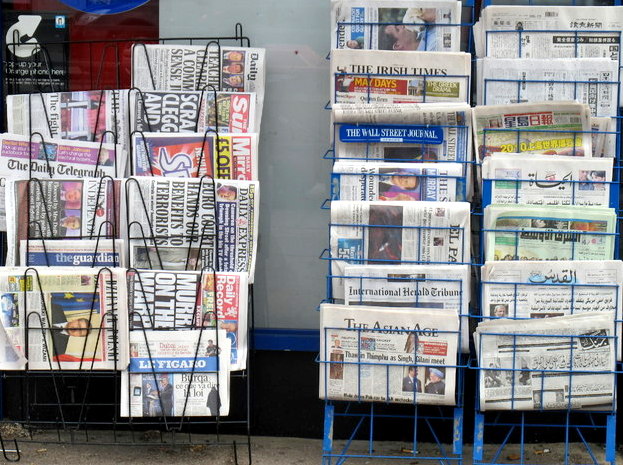Ireland’s Press Ombudsman has ruled that three complaints from a scientist about stories that described him as a “contrarian” and associated him with a network of climate science deniers will not be upheld.
The decision represents a victory for journalists who challenge statements rejecting the overwhelming consensus of scientific evidence regarding the seriousness of climate change.
Professor Ray Bates, an adjunct professor of meteorology from University College Dublin, submitted a formal complaint to the Irish Press Ombudsman about two articles in the Village magazine. Today, his appeal against the decision was rejected.
The articles were penned by environmental journalist John Gibbons, who has previously written on Ireland’s climate science denial network for DeSmog UK.
Bates complained that Gibbons’ articles violated three principles of the Irish Press Council’s Code of Practice: ‘truth and accuracy’ (principle 1), ‘respect for rights’ (principle 4), and ‘prejudice’ (principle 8’).
The core of his complaint was that he was described as a “climate change denier”, that the articles suggested he was not an expert in his field, and that some of his work was akin to “propaganda” and “fake news”.
The Irish Press Ombudsman ruled that after reviewing Bates’ submission, and having considered a long defence from the editor of Village magazine, none of the complaints could be upheld.
In the ruling, the Ombudsman states that:
“In making a decision about this complaint the Press Ombudsman is not required to take sides in the climate change argument involving Professor Bates and others. In the context of the generally robust arguments between professionally qualified participants in debates such as these, in which opposing opinions are strongly held, the Press Ombudsman is not required to decide which protagonist is correct, but only to decide if any of the Principles of the Code of Practice have been breached.”
But having considered Bates’ complaint that the Village had disregarded his expertise, the Ombudsman continued:
“I am conscious that Professor Bates holds views which are at variance with the views of most of the scientific community. This on its own does not necessarily mean that his views can be dismissed. But I can find no evidence that the magazine failed to take reasonable care in checking facts in its research for the articles.”
The ruling goes on to say that, regarding Bates’ complaint that Gibbons referred to him as a “denier”, “I cannot find any clear statement in the articles that Professor Bates is a climate change denier. Equally I cannot find it stated in the articles that Professor Bates is responsible for ‘makey-uppy’ and ‘propaganda or fake news’. The articles associate him with climate change deniers but do not state that he is himself a denier.”
Finally, the Ombudsman decides that the only prejudice that Bates’ complaint could refer to is that of his age, and that “there is no evidence that Professor Bates’ age was a factor in the magazine’s reporting of the issues”.
Victory for Journalists
Summarising the decision, the Ombudsman said, “I have decided not to uphold the complaint and in doing so have taken into account the Preamble to the Code of Practice which states that “The freedom to publish is vital to the right of the people to be informed. This freedom includes the right of the press to publish what it considers to be news, without fear or favour, and the right to comment upon it”.
Responding to the decision, Village magazine editor Michael Smith told DeSmog UK:
“I welcome this decision, which vindicates the right of journalists to ask the hard questions and to hold those who exercise power and influence to account. Deliberate misrepresentation of the issues around climate change has the potential to cause real harm, and I am relieved that the Ombudsman has rejected efforts to censor science reporting in Ireland”.
Despite having his initial complaint and appeal rejected, Bates told DeSmog UK:
“I contend that the Ombudsman was wrong in stating that there was ‘no evidence that the magazine failed to take reasonable care in checking facts in its research for the articles’. I made this clear in my subsequent appeal to the Press Council of Ireland. I contend that Village magazine clearly failed to take reasonable care in checking its facts.”
He pointed to a 2016 paper that he said “proves” he is not a climate change denier, was a practicising expert in climate science, and was not retired from active research.
Main image credit: David Hawgood via geograph.ac.uk CC BY–SA 2.0. Updated: 10/11/2017: A quote from Bates was added.
Subscribe to our newsletter
Stay up to date with DeSmog news and alerts






